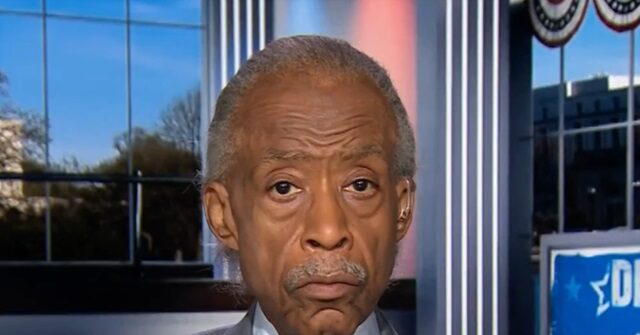On a recent episode of “The Reid Out,” MSNBC host Al Sharpton criticized President-elect Donald Trump and Vice President-elect JD Vance for inviting Marine veteran Daniel Penny to their box at the Army-Navy football game. Sharpton expressed his outrage, asserting that such an invitation was not only disrespectful but indicative of a broader narrative that views Black individuals as subhuman. He specifically highlighted Penny’s involvement in the death of an unarmed man suffering from mental health issues, arguing that honoring Penny elevates him to a status akin to a folk hero. According to Sharpton, this sends a disturbing message that may encourage vigilante behavior and erode trust in the legal system.
Sharpton emphasized that while he accepted the jury’s verdict in Penny’s case, elevating him as a figure of honor—especially given the circumstances of the death—was deeply troubling. He posed the question of whether the reaction would have been the same if the races were reversed, stressing that Trump’s actions appeared to signal a racial agenda. Citing the historical context of racial violence and injustice—drawing parallels to cases involving George Floyd and Breonna Taylor—Sharpton argued that Trump’s willingness to celebrate someone involved in a fatal chokehold reflects a troubling disregard for Black life.
The MSNBC host further questioned Trump’s intentions behind the invitation, suggesting it sends a deliberate message about race relations in America. By honoring Penny, who had killed a homeless Black man, Trump was reinforcing negative stereotypes and sending a signal to his base, which Sharpton implied is comfortable with that narrative. This illustrates a broader concern regarding how individuals with power can shape public perception and the behavior of others, particularly when they condone violent actions against marginalized communities.
Sharpton did not shy away from pointing out other troubling statements made by JD Vance, who has previously discredited Black Haitians. His comments, which insinuated that these communities are less than human, compounded Sharpton’s argument that both Vance and Trump harbor harmful views towards Black Americans. The implications of such rhetoric are far-reaching, suggesting not only an underlying racial bias but also a potential fostering of division and animosity within society.
In discussing the response of Trump’s administration to issues of racial violence, Sharpton lamented the lack of compassion or acknowledgment for the families of victims. He expressed disappointment that Trump, who held office during several high-profile cases of racial violence, failed to engage with or comfort those mourning their loved ones. This absence of empathy, when juxtaposed with honoring individuals like Penny, raised alarm bells for Sharpton, who argued that it signifies a moral failing in leadership.
Ultimately, Sharpton’s commentary serves as a critique of the current political climate, where acts of violence are framed in a heroic narrative and marginalized communities are perpetually disrespected. He underscored the importance of acknowledging and confronting these troubling trends, advocating for a society that values every life equally, regardless of race. The choice to invite someone like Penny into a position of honor at a public event, according to Sharpton, poses a serious question about the collective values that are being promoted at the highest levels of government.

